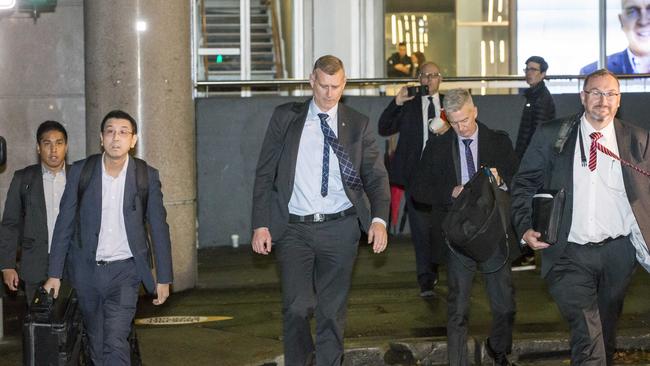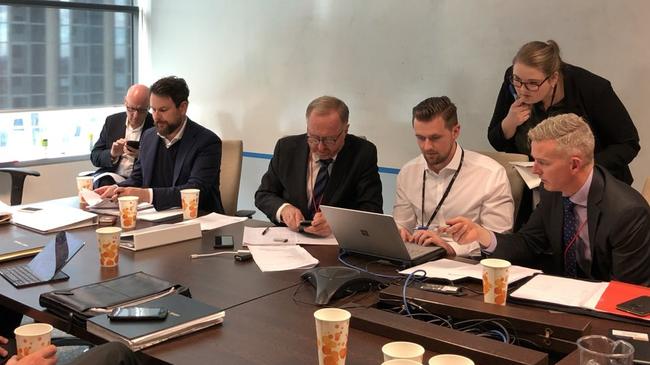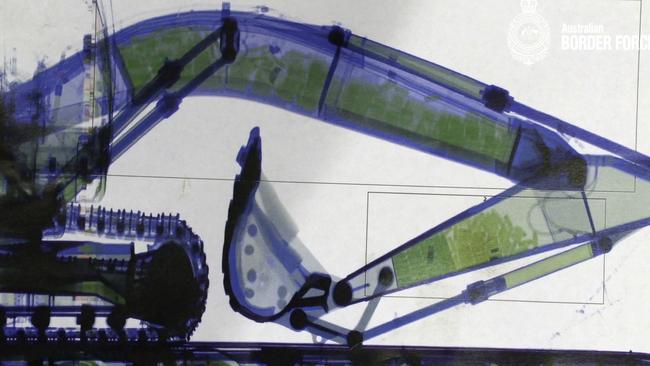Editorial: AFP demanding finger prints from ABC journalists is a step too far
The Australian Federal Police demanding finger and palm prints of two ABC journalists to build their own case is extraordinary. They haven’t stolen anything. Rather they endured invasive AFP attention because they’re suspected of committing journalism.
In the United States, where the freedom of the press is treated seriously, a legal principle known as “probable cause” stands to protect citizens and businesses from unjustified police searches.
The term is drawn from the US Constitution’s Fourth Amendment which states:
“The right of the people to be secure in their persons, houses, papers, and effects, against unreasonable searches and seizures, shall not be violated, and no Warrants shall issue, but upon probable cause, supported by Oath or affirmation, and particularly describing the place to be searched, and the persons or things to be seized.”
Consider the Fourth Amendment’s wording, particularly that line about the right of the people “to be secure in their persons” against “unreasonable searches and seizures”.

Then ask yourself if the Australian Federal Police’s latest outrages towards members of the Australian media would ever stand a chance of being permitted in the US.
It has now been revealed the AFP demanded the finger and palm prints of two ABC journalists — Dan Oakes and Sam Clark — who were later subject to raids over leaked information.
This is extraordinary. With no probable cause evident, the AFP sought to obtain fingerprints in order to build their own case against the two journalists.
The pair are not suspected of stealing anyone’s car or of plotting acts of violence.
Rather, they have endured invasive AFP attention because they are suspected of committing journalism.
“Australian journalism had come to this: two journalists were being treated the same way as someone suspected of breaking into a house,” ABC head of investigations John Lyons said on Monday of the fingerprint demands.
“This was a chilling development — it’s believed to be the first time in Australia that journalists were being asked to provide fingerprints.”
And it is not over yet.

The AFP’s acting commissioner Neil Gaughan has made it clear the AFP is keeping open its option of charging Oakes, Clark and News Corp senior reporter Annika Smethurst, whose Canberra house was raided early last month.
US law obviously has no force in Australia, but our federal police very much ought to reflect on the power of the Fourth Amendment’s argument.
TWO TIES, ONE GREAT GAME
About halfway through England’s World Cup run chase,
Sky Cricket producer Rob Williams contacted the Lord’s commentary box with important news.
“Our producer has got a sense of humour,” commentator Mike Atherton told viewers.
“He’s just reminded us to remind you there’ll be a super over should this game end in a tie.”
And the former England captain laughed, because at the time a tie seemed far from likely. But his producer was right.
That tie, and the subsequent tied super over, then gave us one of cricket’s most thrilling finishes. Congratulations to all players.
A BIG CAT’S HEAVY HAUL
Even in used condition, a large Caterpillar excavator is not an insignificant investment. Businesses involved in earth-moving pay many thousands of dollars to purchase and maintain such equipment.
But the size of an investment must always be judged against any likely profit. This evidently applies even if the purchase of an excavator has nothing at all to do with earth-moving.
Two men are now in custody after being arrested for allegedly receiving nearly 400kg of cocaine in an excavator imported from South Africa.

An X-ray of the machine revealed what authorities describe as “anomalies”, which turned out to be package after package of the drug. All up, the street value of this haul might have been north of $140 million.
Against that, losing even $50,000 on a Caterpillar is something alleged drug dealers can easily justify.
This case highlights the need of Australia border protection authorities to constantly upgrade their detection methods.
Our authorities are dealing with cashed-up foes. The trick is remaining one step ahead.


